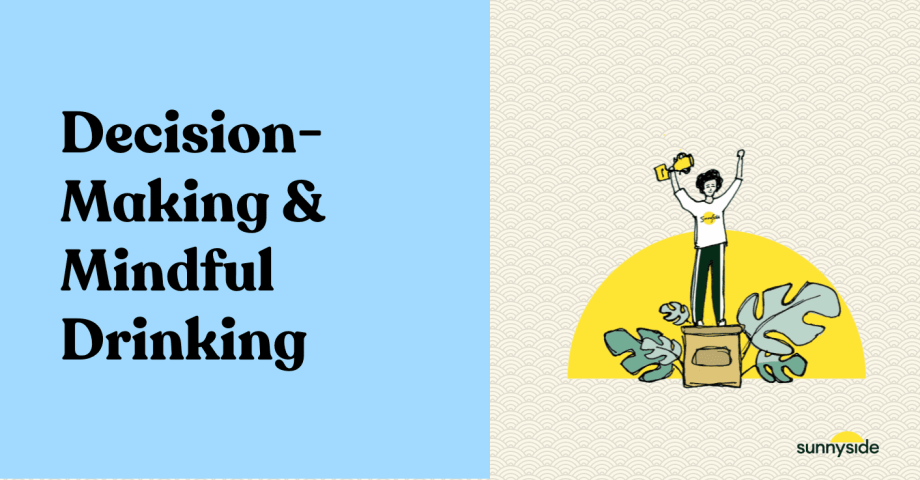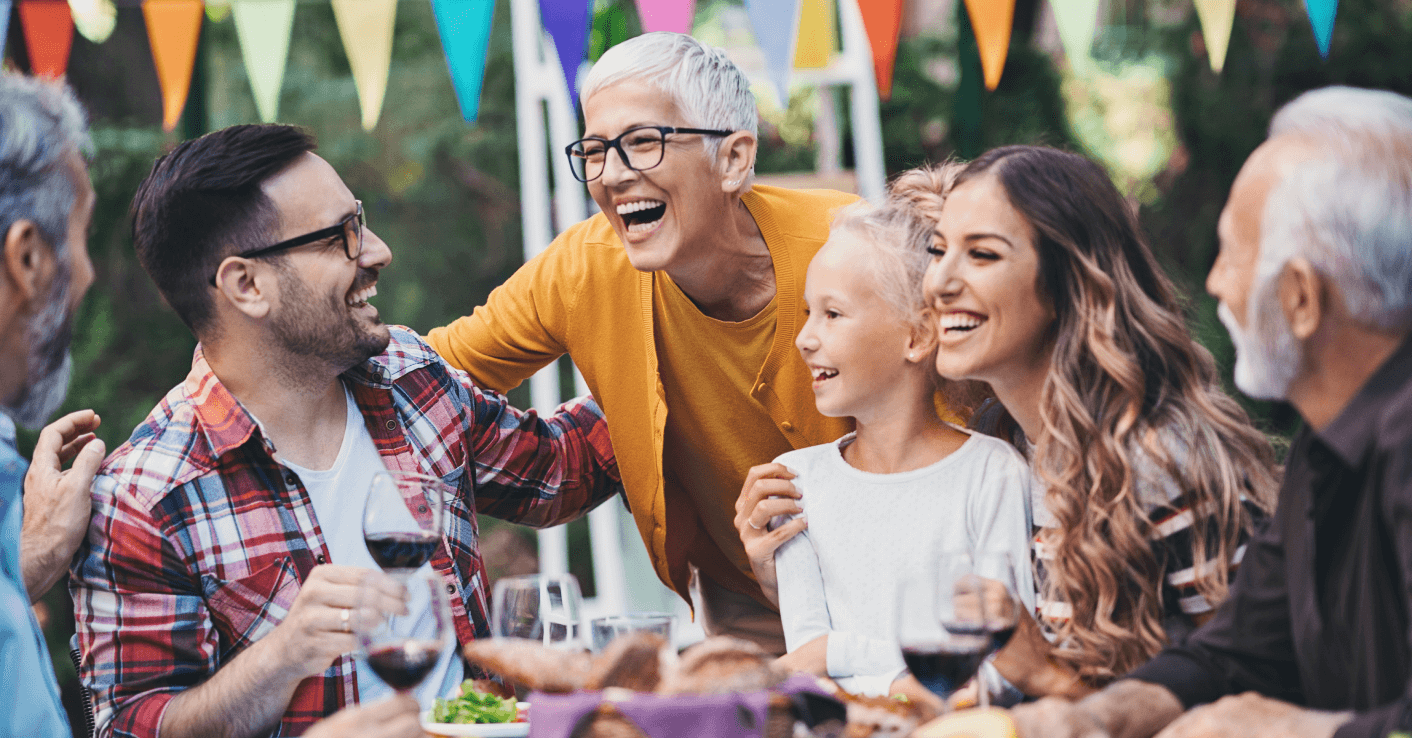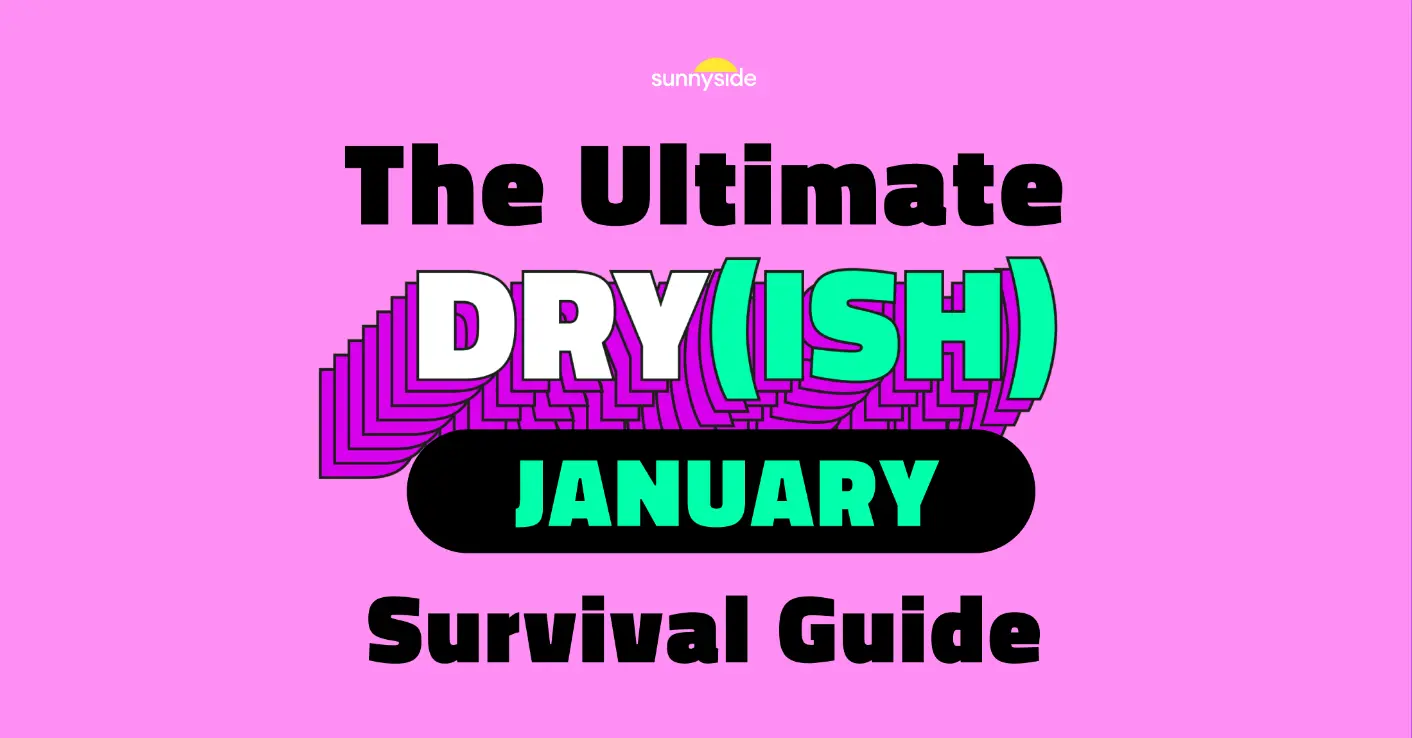Last Updated on May 15, 2023
Have you ever gone to work with a pounding headache, regretting the previous night’s drink galore? Perhaps, your drinking habits usually land you in a tough spot, but you aren’t ready to give up the magic of barley and hops just yet. Well, here’s some good news for you. You don’t have to give up drinking to build a healthier relationship with alcohol and improve your productivity.
But what you will have to learn is how to de-stress, socialize, and unwind—without the help of alcohol. Drinking then becomes a conscious choice, not a reflex. If you wish to be more thoughtful with your drinking decisions, mindful drinking is the solution.
What is Mindful Drinking?
Some of us are familiar with the all-or-nothing mindset. Either you drink with abandon or avoid alcohol. And for a small subset of people, total abstinence is the answer to a healthy lifestyle. But for the vast majority of U.S. adults who drink alcohol (about 75%), such abstinence isn’t a desirable or realistic end goal.
Mindful drinking offers that middle ground. Contrary to going teetotal, mindful drinking is the conscious, reflective approach to drinking.
You’ll proactively pay attention to how alcohol impacts various facets of your life, from your relationships and social interactions to your finances and work performance. This encourages you to be intentional with your drinking decisions.
You’ll also consciously decide to evaluate your drinking urges and patterns. And all this without necessarily locking onto the ‘alcohol-free-forever’ aspiration. Thus, mindful drinkers often find themselves in a judgment-free environment, where they have the freedom to explore their relationship with alcohol without the encumbering pressure to quit.
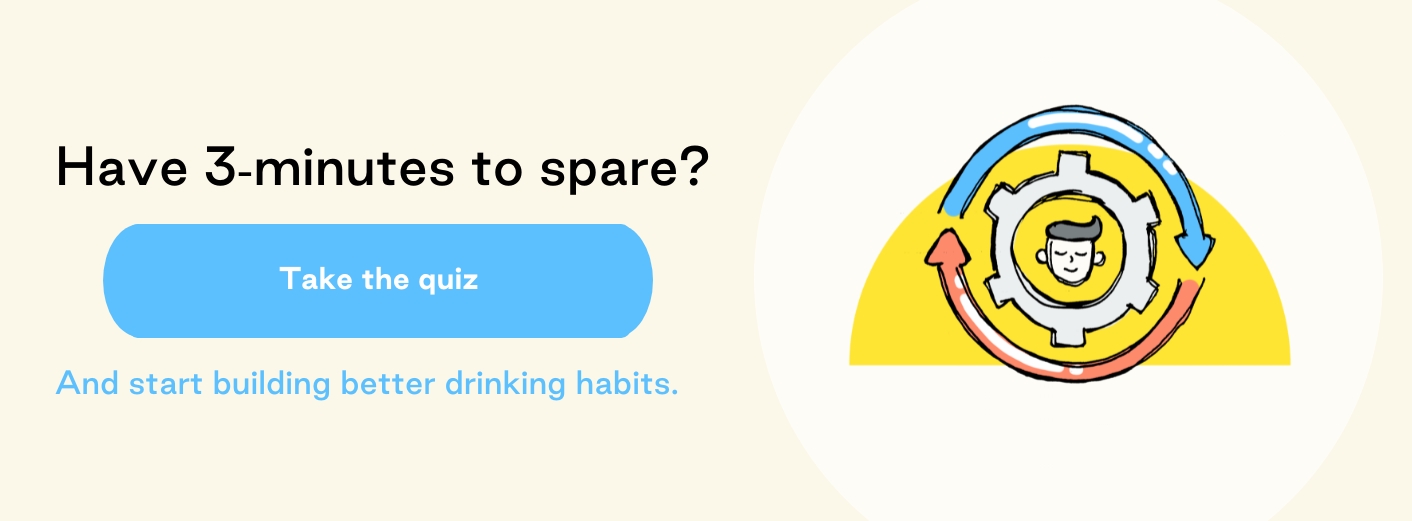
How Drinking Impacts Your Productivity And Decision-Making
To set the record straight, we’re not suggesting you should stop enjoying alcohol. But overindulgence often has its own side effects.
Have you ever had a couple of drinks a little later than intended, thinking perhaps an hour less of sleep shouldn’t affect you too poorly? But then the next day, you realize functioning at your usual 100% feels a little out of reach. That’s because just about any amount of alcohol negatively impacts your body’s ability to rest and recover.
A 2018 published review revealed that greater alcohol consumption is linked to greater levels of impaired productivity and performance. Based on those findings, researchers concluded that alcohol has the potential to influence your brain function, physical coordination, speed, and dexterity.
On top of that, having too much alcohol can lead to hangovers and associated symptoms, including headaches, nausea, fatigue, irritability, and drowsiness. All these symptoms can impair your mental and physical performance, especially with more complex tasks.
Alcohol can also reduce your sleep quality. Drinking before bed commonly causes decreased sleep duration and quality and increased sleep interruptions and disturbances. A lack of sleep means another hit to your productivity.
Aside from a downturn in productivity, alcohol can also impair decision-making. A study on social drinkers suggests that alcohol can hamper your ability to effectively incorporate and assess the information available to make good decisions with favorable outcomes.
How Can Mindful Drinking Help?
We all know that the more you drink, the more likely you are to experience the negative effects of alcohol.
Mindful drinking empowers you to take more control over your drinking desires and decisions so that alcohol has less influence over your mental, emotional, and physical wellness.
For starters, mindful drinking allows you to spot patterns, habits, and triggers that lead to undesirable outcomes. Perhaps, you started drinking because of work stress. But one glass turns to two, and two to four, and the habit of overindulging develops. And now, you’re constantly nursing a hangover while trying to crunch the numbers and dissect pie charts.
With mindful drinking, you allow yourself to reassess whether you really need those extra glasses of wine or beer. You’ll also begin to question your drinking triggers—maybe there’s a healthier way to cope with stress?
Additionally, mindful drinking helps you reflect on how alcohol fits into your goals and desired lifestyle. You could be looking to lose weight, improve your productivity at work, make better decisions, or stay within your spending budget. Whatever it is, you can proactively change how much or how often you drink to attain your goals without any pressure to quit.
How To Get Into The Groove Of Mindful Drinking
Understandably, cutting back on alcohol can be a little challenging. But here are some mindful drinking tips that may help. Watch this video from Sunnyside to learn some actionable tips for becoming a more mindful drinker:
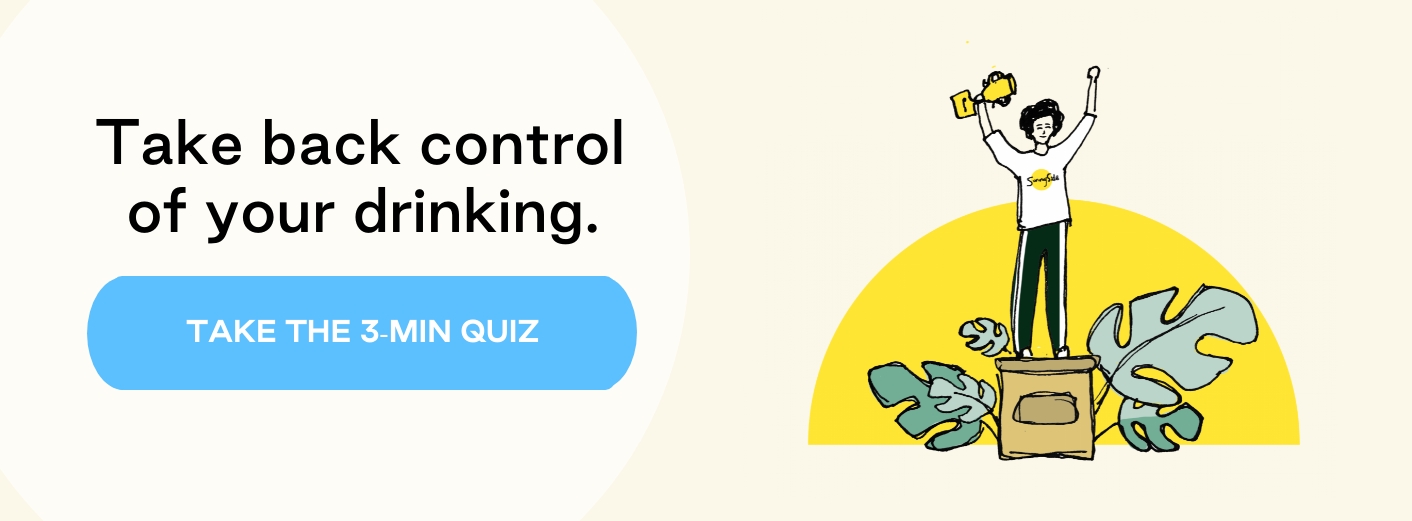
Pace yourself.
Let’s start with something very practical. Aim to make a standard drink last for about an hour. Sipping may feel foreign at first, but pacing yourself with the help of an app or timer ensures you don’t down too much too quickly.
Instead of going on a drinking streak, try alternating between boozy beverages and something non-alcoholic, like sparkling water. If you’d like, adding a garnish or lime to your drink could make it more sophisticated and attractive.
Eating before and during your drinking sessions can also improve your pacing. Having a meal before you hit the bar means you won’t be drinking to stifle your hunger—not to mention it slows down the rate of alcohol absorption, thus, reducing the effects of alcohol on your body.
Figure out your “WHY.”
Why do you drink?
Many people drink as a way to cope with stress and escape reality for the time being. While having a couple of drinks has become a culturally-acceptable way to blow off some steam, this could lead you down a dangerous rabbit hole.
Maybe your job is leading to burnout, dissatisfaction, and anxiety. But drinking to numb your emotions isn’t the best approach, and it may be time to make a switch.
Try to figure out if drinking is the temporary Band-Aid you slap onto problems that require you to take concrete actions.
Commit to a plan.
Setting limits beforehand, committing to weekly plans, and setting realistic goals are some of the best ways to cut back on your drinking.
The key here is to be reasonable with what you want to achieve. Emptying your entire shelf and abstaining from alcohol for the rest of the year will likely be an uphill battle. But avoiding alcohol for a single social event is a lot more doable.
There’s nothing wrong with starting small and going slow. And while carrying out your game plan, stay wary of the urge to ‘FOMO’ in. Focus on what you stand to gain rather than the ‘fun’ you’re missing out on.
Reframe your focus.
Shift the focus onto what you can do rather than what you can’t do. You can pursue other creative interests, hit the gym, visit the farmer’s market, or whip up your favorite pasta dish. Or you could replace a Cosmopolitan with a Cappuccino or Coca-Cola.
Many New Year’s resolutions fail because people are not framing them positively. When you tell yourself to stop drinking, to stop having junk food, or to stop overspending, this can backfire because you’ll be thinking of the exact thing you want to avoid. Instead, remind yourself of the behavior you desire to create and the other exciting things you can do and have in place of a drink.
Build a support system.
Tell one or two of your trusted family members and friends that you’re trying to improve your drinking habits. They can then come alongside you to support you, keep you accountable, and celebrate your achievements along the way.
Letting your drinking friends in on your goals may also be helpful. They may be less likely to urge you to hop onto the ‘just-one-more-drink’ bandwagon. But if not, learn to say a firm and solid “no.” Or leave the party earlier if the temptation to drink only fortifies.
In any case, it’s best to surround yourself with people who will respect your boundaries and support you in achieving your health and wellness goals.
Try out a mindful drinking app.
A mindful drinking app like Sunnyside provides a structured approach to support you in cutting back on alcohol. Through this app, you’ll commit to a weekly action plan tailored to fit your goals, schedule, and preferences, and you’ll have the support of a non-judgmental community and team of real human coaches.
You’ll also gain access to valuable features like accountability messages and daily reminders to track your drinking. In this app, you’ll be able to keep tabs on your achievements in terms of calories avoided, money saved, and drinks cut. Ultimately, the Sunnyside app empowers you to foster healthier drinking habits in a judgment-free space with absolutely zero pressure to quit.
Sunnyside comes with a free 15-day trial, so you can try it out for yourself. The cost is then only $8.15/mo if you decide to continue, less than the cost of a fancy drink. And the best part is that Sunnyside members are seeing big results in their first 30 days, such as 29% less weekly alcohol, 1,500 calories cut from their diet, and $50 saved from not spending on alcohol.
